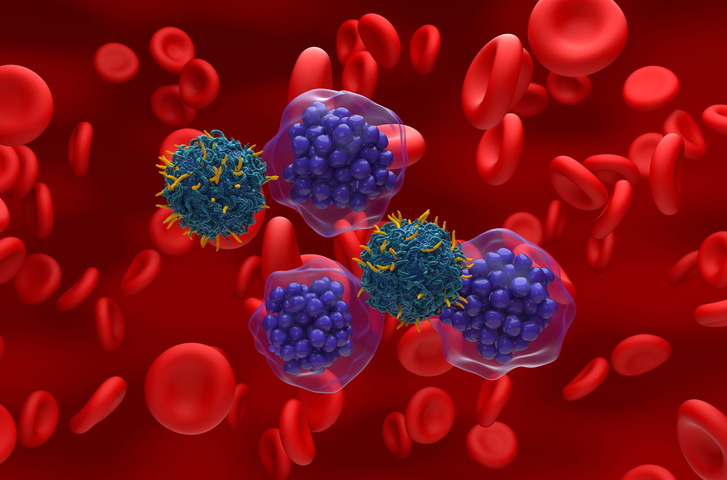
Interim safety results from the phase IIIb ASSURE trial of acalabrutinib monotherapy for chronic lymphocytic leukemia (CLL) were recently presented at the Society of Hematologic Oncology 2024 Annual Meeting in Houston, Texas.
“The safety profile of acalabrutinib in patients with CLL in a real-world clinical setting was consistent with previous clinical studies,” wrote the investigators who conducted the safety analysis. They found no new safety signals for the second-generation Bruton tyrosine kinase inhibitor and attributed the high frequency of COVID-19-related treatment-emergent adverse events (TEAEs) in the trial to enrollment during the pandemic.
The study involved 552 adult patients with CLL, with a median age of 69.5 years. The patients were separated into three groups: 310 patients were treatment-naive, 202 had relapsed or refractory disease, and 40 had ibrutinib-intolerant disease.
All patients received oral acalabrutinib at 100 mg twice daily for 48 cycles of 28 days each, or until disease progression. The median duration of exposure in treatment-naive patients was 32.1 months, 32.3 months in patients with relapsed or refractory disease, and 20.5 months in patients with ibrutinib-intolerant disease.
At data cutoff, 64% of the total trial cohort was still receiving treatment. By Kaplan-Meier estimates, the proportion of patients who remained on treatment at 30 months was 71% of patients with treatment-naive disease, 62% of patients with relapsed or refractory disease, and 45% of patients with ibrutinib-intolerant disease.
TEAEs led to treatment discontinuation in 19% of the total cohort. Grade 3 or worse TEAEs were reported by 57% of the total cohort, 54% of treatment-naive patients, 63% of patients with relapsed or refractory disease, and 45% of patients with ibrutinib-intolerant disease.
For the total cohort, the most common grade 3 or worse TEAE was COVID-19 infection, which affected 13% of patients. The next most common were pneumonia, which occurred in 7% of the cohort; anemia, which occurred in 6%, and COVID-19 pneumonia, which occurred in 5%. The investigators noted that “incidences of atrial fibrillation/flutter, hypertension, and major hemorrhage were low.”
In 56 patients, TEAEs led to mortality; 41 of the deaths occurred in patients who had a confirmed or suspected COVID-19 infection. Among mortalities in patients without COVID-19 infection, four were associated with other infection or infestation and four with neoplasms.
Reference
Opat S, Awan FT, Fogliatto L, et al. Interim results from ASSURE: a phase 3b safety study of acalabrutinib in patients with chronic lymphocytic leukemia. Abstract #CLL-186. Presented at the Society of Hematologic Oncology 2024 Annual Meeting; September 4-7, 2024; Houston, Texas.






 © 2025 Mashup Media, LLC, a Formedics Property. All Rights Reserved.
© 2025 Mashup Media, LLC, a Formedics Property. All Rights Reserved.